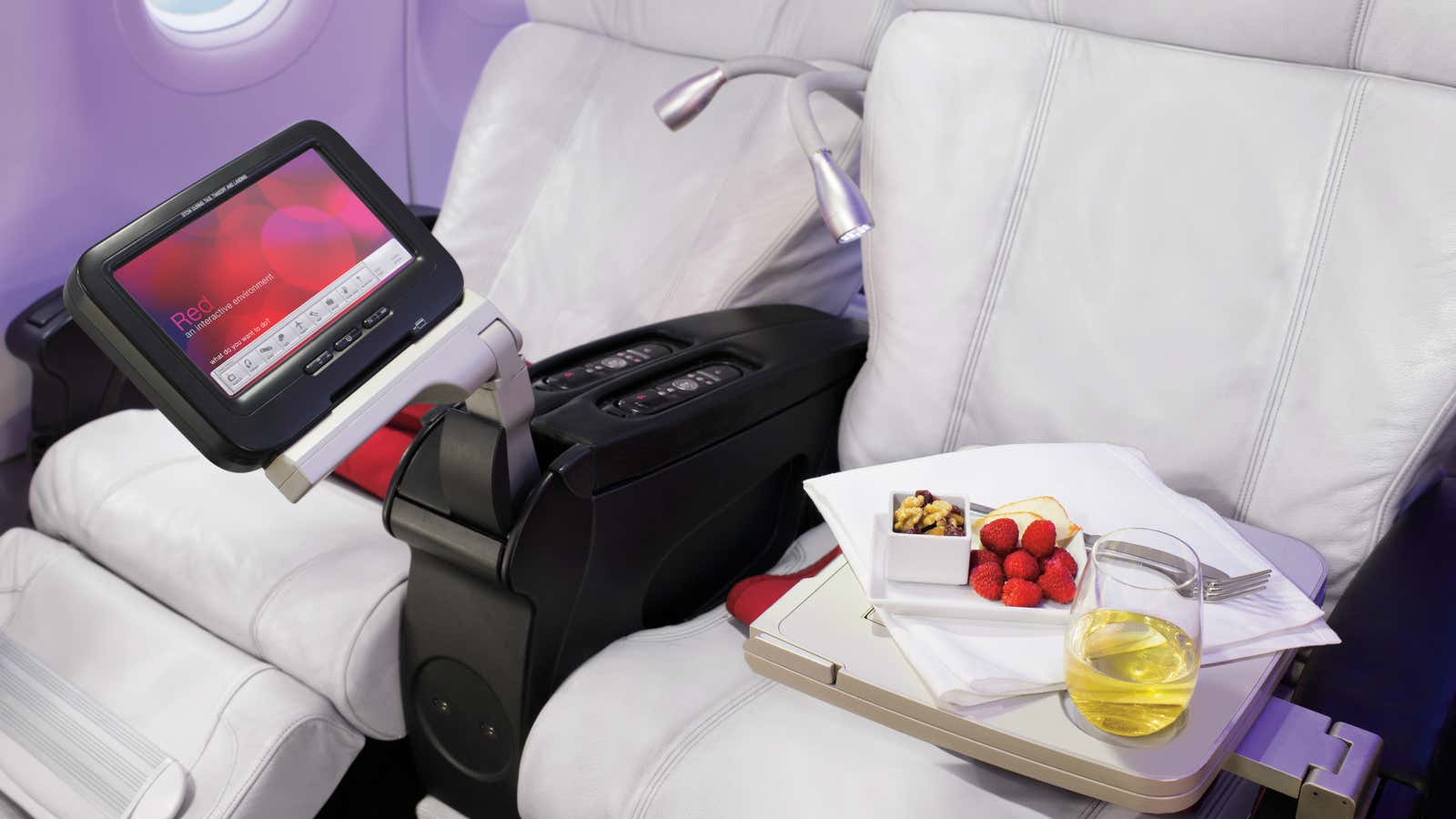“Love” is a word rarely associated with commercial airlines, especially in the US. Consumers rank several carriers that dominate the American skies among the lowest in the world.
There’s an exception: Virgin America. Less than a decade after its maiden flight in 2007, the airline has won top marks and awards (pdf) for flyer-friendly service, which includes white leather seats in first class, mood lighting throughout the cabin, an early adoption of in-seat entertainment and seat-to-seat messaging.
Consumers aren’t alone in taking a liking to Virgin America. West Coast-rival Alaska Air, which is no slouch either, bought Virgin America on Wednesday, for $2.6 billion, giving the Seattle-based carrier access to Virgin America’s routes, including those to and from coveted East Coast airports. The deal makes Alaska the fifth-largest airline in the US, knocking JetBlue down a notch.
Can Alaska keep everyone happy?
It isn’t clear whether Alaska will maintain Virgin’s famed cabin design and brand, but the carrier is hinting that Virgin America will keep the brand upon which Virgin Group founder Richard Branson built his empire. (The deal does not include other Virgin airlines, Virgin Atlantic and Virgin Australia.)
“Alaska Airlines and Virgin America are different airlines, but we believe different works – and we’re confident fliers will agree,” Alaska Air Group’s chief executive Brad Tilden said in a release announcing it had made the hard-fought merger official.
The two airlines, he said, ”may look different.”
Trend-setting mood lighting isn’t all Alaska Air will have to maintain. Alaska has some of the highest marks for punctuality in the US, something that may be tricky to manage in an expanded network, particularly given that 80% of the US market is controlled by only four airlines: American, Southwest, United Airlines and Delta.
When one airline suffers cancellations, others are affected and it leaves consumers with few alternatives.
